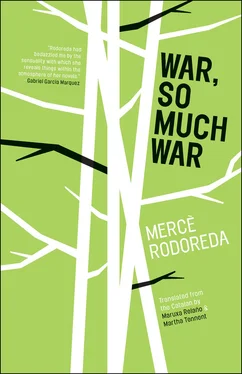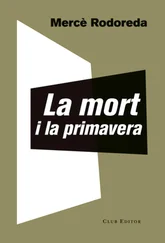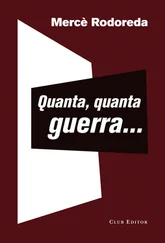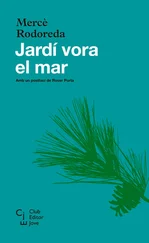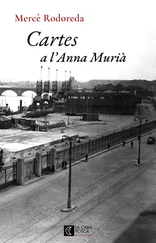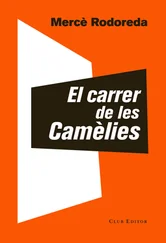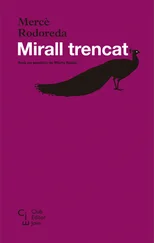
Some kind of animal drew near me. I turned over with a moan. The animal didn’t budge. I stretched out my arm to touch it and felt an icy hand: I was lying next to a dead soldier. My bones ached, but I made an effort to overcome the pain and attempted to roll farther down the bank. The reeds stopped me. It was drizzling. I was starting to fall asleep, I couldn’t understand why everything that was good in this world had abandoned me.
I HEARD AN EXPLOSION COMING FROM THE DIRECTION OF THE mill, followed by flames and plumes of smoke. Throngs of soldiers were building a bridge across the river with rowboats and wooden planks. The sound of engines and men shouting was deafening. They must have worked all through the night. Soon trucks and cannons were crossing the bridge, and the white horse — crazed, neighing, rearing — stood in the middle of it all. Two silver planes circled above the bridge. An explosion sent jets of water spewing into the air. The bridge collapsed and four trucks fell into the river. What are you doing here? You look like a skeleton. Juli-Juli stood looking at me, shirt unbuttoned, face bloodied, hands trembling. You escaped a real mess by hightailing it. He asked me what I had done since I left. He was eager to talk, talk about anything. He sat down beside me. Don’t look. The water beneath the bombed bridge has turned crimson. We’re surrounded by dead soldiers. Talk as much as you like, but don’t look. Say something. . quick. Don’t look toward the bridge. He laughed as he wiped the blood off his face with his arm. He laughed louder, closed his eyes, opened them again. His eyes were restless, never still. Did you know there’s a barmaid. . she travels around in a wagon pulled by two horses that are just flesh and bones. Hush, I said, covering his mouth with my hand. Airplanes roared overhead; little by little the sound died away. Her name’s Faustina and she sells peanuts, belts with buckles shaped like skulls, tobacco mixed with grass, and stale drinks. An ambulance approached the bridge. Through the reeds I caught a glimpse of the horse; it was standing still. The water was sweeping away dead soldiers, wounded soldiers, scraps of rowboats, burnt wood. Juli-Juli predicted that the war was winding down and we would soon be returning home, waving our flags amid throngs of girls who would throw flowers at us. It’s in its final throes. Now we have to concentrate on saving our own skin. That, above all. He was quiet for a moment, and then he asked, have you ever flown? I fly at night. It keeps me from feeling hopeless. As soon as I lie down I imagine that, instead of a ceiling of reeds and plaster, above me there is the frenzy of the stars: trails of stars, fields upon fields of stars; and after a while of thinking only of the heavens, I start to float away and begin to fly. I see the mountains, the villages, the sea. . all of it from up above. I had my eyes on the horse, which had started to move toward us. . Then suddenly I couldn’t breathe: Someone was poking me in the back. Two soldiers were standing behind me. Everything is going to pieces and the two of you are jabbering away. Animals! Yackety-yak. Without even entrusting myself to God or the devil, and risking being shot, I gathered the strength to make a dash for the horse and mount it. As if a spring mechanism had been released, it galloped furiously away with me on its back. Two shots rang out. One of the bullets raised a small cloud of dust a few meters from me. We passed through a forest, an abandoned village, a smoldering farmhouse; until the horse came to a sudden halt, sending me headfirst into a trench filled with water. I landed on top of Bartomeu, the cook for the soldiers I had left behind, just as he was emptying a machine gun on the men on the other side, shouting, try that on for size!
THAT SAME AFTERNOON THE ORDER CAME TO WITHDRAW. JULI-JULI gave me the news, though I still don’t know how he found the spot where the horse had thrown me. There were about a hundred men, all of us young, bone-weary, bored. Our column did not stop moving until we were within sight of an abandoned farmhouse surrounded by acacia trees, with a hill behind it. We climbed down from the trucks and began setting up camp. The sense of peace that pervaded the place made it seem as if the world had never been at war. I learned to load and unload a rifle. To shoot. How old are you? Fifteen. You look older. Come on, let’s see if we can teach you how to aim. I didn’t want to. I aimed high or low, to the right or the left of the cardboard man we were supposed to hit. I didn’t want to learn how to kill. The jerking of the rifle butt almost dislocated my shoulder.
I got in the habit of climbing to the top of the hill to ease my bouts of anxiety. Soon a Barcelona boy from the neighborhood of Gràcia started joining me. His name was Agustí. He was born on Torrent de les Flors; his family earned a living by selling milk. He said everything at home had an odor of cow because the stable was at the back of the shop. All those cows inside the house! He said that after he was called up he had trouble sleeping without that smell he had known since the day he was born. His mother would wake him at four o’clock every morning to deliver the milk; he was only eight years old then. With half-lidded eyes and a sleepy heart, he would traipse from one street to the next loaded with pans and measuring cups, sometimes climbing three flights of stairs in the dark to sell a lousy quarter of a liter of milk that only cost five cents. But at seven o’clock sharp he would put everything down: pans, measures, and all the other stuff, and he was off to Mass. The smell of incense overpowered him. . the quietude, the priest’s words that he liked because he didn’t understand them. The chasubles thrilled him — white, rose, yellow, purple — every one of them embroidered in gold. And the lilies on the altar, the crowns of saints whose pink knees showed through a rip in their tunics. A neighbor complained to his mother that for days her husband had gone to work on an empty stomach because he hadn’t delivered their milk; she knew it was on account of Mass. Every day to Mass. My mother, who kept a close watch on the business, slapped me silly and left me without dinner for two nights. But I sneaked down to milk a cow and drink the milk, gulping it down so fast in my haste to get back to bed that I almost choked. One’s obligations above all else! my mother would shout. Piety above all else! declared Father Camilo at school, clasping his hands together, then opening his arms. I didn’t know what to do, but I went to Mass even if it meant getting there in the middle and not being able to see the angel begin his work of covering the floor with little blue and crimson squares. Or seeing him blow the bubble that enveloped the church and created the petals that buttressed it all the way from the high altar to the last pew. What are petals? He looked at me: The leaves of plants are called leaves, the leaves of flowers are called petals. And he understood right away that because he had to deliver the milk he couldn’t witness the scores of angels helping the first angel blow, while rays of light beamed from altar to worshippers and worshippers to altar. Feeling so bound by duty to my family made me want to cry, because it kept me from God who had made the churches. When I think that so many of them were burned down I want to kill the ones who did it, even if killing isn’t allowed. And you — I asked him — who told you all that about the angel that blows and the bubble? He was silent for a moment and then said in a hushed voice, it’s a secret. And, scratching his arm nervously, he added, here we go again: lice. Two days later I was also scratching myself. A shiver that started out sweet as honey and developed into a frenzy. After four days there wasn’t a soldier left who didn’t have his hair and every fold of his clothes mined with lice. Tiny ones, large ones, and eggs about to burst, white as chicken brains. Bartomeu said he could spot their flying shapes against the backlight. Juli-Juli said we thought about it too much. Kill ’em, but stop talking about it. We went down to bathe in a huge tank that collected water that gushed from a spring. But we couldn’t rid ourselves of that plague of lice. They fly! I’m telling you they fly! With great parsimony, Juli-Juli squashed them between two fingernails. Whenever he caught an especially large one he would show it to us. Behold: A louse fit for a king! Lice were king there; they were glued to us and played possum when they had had enough. I saw one fly from Ximeno’s shirt to Viadiu’s back. They were eating us alive. Always ready to put their blood-sucking mouths to use. They don’t have mouths, they have ducts!
Читать дальше
